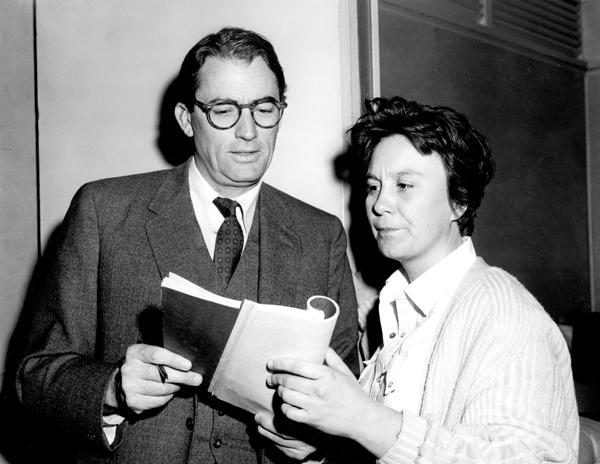|
Reviews of Recent Independent, Foreign, & Documentary Films in Theaters and DVD/Home Video

HEY,
BOO: HARPER LEE AND TO KILL A MOCKINGBIRD Hey, Boo: Harper Lee and To Kill A Mockingbird marks the 50th anniversary of the publication of the beloved, perennial best-selling novel, with new insights into the writing and popularity of the book, the film adaptation, and the author who has avoided all media comment since 1964. Writer/director Mary McDonagh Murphy is also the author of last year’s Scout, Atticus & Boo: Fifty Years of To Kill a Mockingbird, not the other, controversial book that Lee has recently discredited, though both include comments by her twinkling, older nonagenarian sister Alice. There are a lot of home photographs, readings of pieces that Lee wrote, and interviews she granted before her public silence. Among the interviews and tributes from Nelle Harper Lee’s family, friends, and famous fans, most informative is background on the birth of the book. For all its vivid evocation of the South during the Depression, the book was written and edited over several years in New York City. Joy and Michael Brown describe their mentorship when she first arrived and their role as her patrons. Their generous Christmas gift in 1956 enabled her to quit her job as an airline reservations clerk so she could full-time expand on the vignettes of her hometown that they admired. The documentary includes charming tours of people and places in Monroeville, Alabama to identify the inspirations for specific people and places in the novel (including the local court house where her father practiced). More intriguing is that two of America’s most notable writers grew up together as neighbors in this small town. Lee’s friendship with Truman Capote was probably not widely known, let alone her research assistance on his In Cold Blood, until two recent feature films, with excerpts here from both Bennett Miller’s Capote (2005) (the one with Philip Seymour Hoffman and Catherine Keener) and Douglas McGrath’s Infamous (2006) (the one with Toby Jones and Sandra Bullock). It is only after their friendship is discussed (including identifying the character Dill as probably being based on Capote as a boy) that it is revealed that he was the one who recommended Lee to her New York supporters, making his later jealousy of her Pulitzer Prize that much sadder. In addition to a regional perspective from Southern writer Allan Gurganus, there is a generational divide among the African-American interviewees. While Oprah Winfrey waxes euphoric about reading the book (and describes how hard she tried to get Lee on her TV show), an older woman who grew up in the black section of Monroeville and civil rights leader Andrew Young were not as shocked, shocked as others in America to learn about racism in the Deep South.
Even more reverentially, the documentary is almost as much about Robert
Mulligan’s 1962 film version, crediting the movie’s success as a major
factor in the book’s enduring popularity. Descriptions by the casting
director supplement the memories of Mary Badham, who played Scout.
(Robert Duvall is noticeably missing to talk about his mute debut film
role as Arthur “Boo” Radley.) Such
overflowing love and respect bestowed on one author and one classic book
leaves almost no room for regrets that the now 85-year-old Harper Lee
does not appear on screen herself, let alone that she hasn’t published
another book.
Nora Lee Mandel
|

